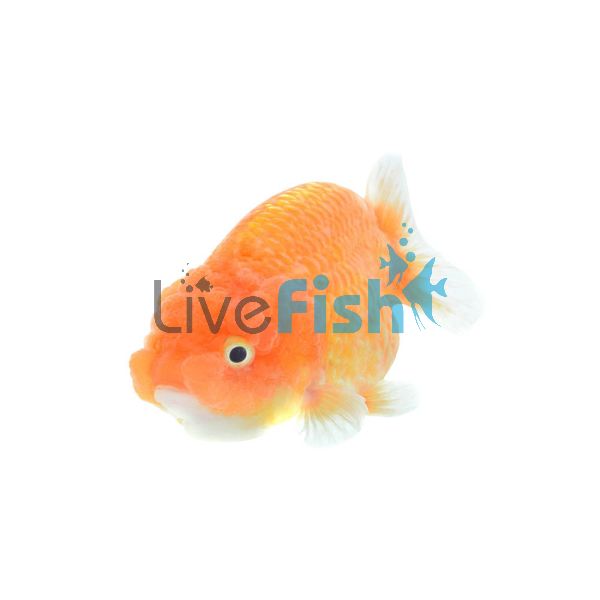Assorted Ranchu 4cm
Entering the world of fancy goldfish presents a vast array of different and colorful goldfish. One of the most recognizable and popular species is the Ranchu because of its unique look and size. The Ranchu is most popular because of the bubbly when that individual can develop on their heads. Where in some goldfish variants the wen stops at the top of the head, in Ranchus it can grow all over their face giving them this adorable, chubby look.
Assorted Ranchu
Entering the world of fancy goldfish presents a vast array of different and colorful goldfish. One of the most recognizable and popular species is the Ranchu because of its unique look and size. The Ranchu is most popular because of the bubbly when that individual can develop on their heads. Where in some goldfish variants the wen stops at the top of the head, in Ranchus it can grow all over their face giving them this adorable, chubby look.
Ranchus are also prized for their larger overlapping scales, the tri-tipped tail, and most importantly their stubby bovine-like body which often leads to them getting called the Buffalo goldfish. They also come in multiple color variants with deep oranges, golds, whites, and blacks meaning that if there are multiple kept together, they can be easily recognized in the aquarium. Ranchu and goldfish in general are great algae eaters and will make a fantastic addition to outdoor ponds as they will readily graze and eat any algae which can proficiently grow in sunny pond conditions.
It isn’t recommended to keep Ranchu all year round however in outdoor conditions as they have been bred in tropical conditions, due to their stubby nature, digestion and organ functioning can be compromised in cold environments. Ranchu are also large-growing goldfish often reaching fist size or bigger. Because of this they aren’t exactly beginner fish and are better suited to more experienced aquarists looking to broaden their goldfish varieties.
Due to their larger size and structure, they aren’t as active as other goldfish varieties like fantails. Ranchus do spend a decent amount of their time swimming but you can also observe them lounging around in corner of the aquarium or slowly skimming the bottom of the tank which almost looks like a cow grazing. Ranchus max out at around 20 cm long and are actually not found naturally in the wild as they are selectively bred fish for the captive environment.
Tank Recommendations for Ranchu Goldfish
The Ranchu goldfish can get fairly big at 20 cm, they also get fairly wide and can be heavy goldfish meaning that an individual Ranchu would need around 75 liters (20 gallons) however they are recommended to be kept together with other fancy goldfish. So, when keeping multiple goldfish together a larger tank would be needed, an ideal tank size for not only Ranchu but all fancy goldfish would be 120 cm x 60 cm x 60 cm. The thing to note however with Ranchu goldfish is that their stubby body and shorter fins make them not the best swimmer so a slower flow is better. both in a pond or aquarium, a sand substrate is best as Ranchu will actively sift through the sand and smooth river stones can be added for further decoration. Sharp materials should be avoided in the aquarium-like pointy driftwood especially for Ranchu because they can easily damage their wen. This can lead to infection and immune-related diseases in the fish.
Suitable Tank Buddies
Ranchu are great fish as they are not aggressive in the slightest and can be kept with tank mates. Common tank mates they can be kept with are active and small subtropical tolerant fish. The goldfish however might eat fry produced by these smaller fish however they will be perfectly fine with adults. Fin-nipping species however should be avoided entirely as they will make short work of the Ranchus fins.
Usually Compatible
Other fancy goldfish species, Medaka ricefish, giant danios, zebra danio, White Cloud Mountain minnows
Sometimes Compatible
Species can be fin nippers like rosy barbs and also tropical species such as angelfish, dwarf cichlids, mollies, and species of a similar sort. These goldfish can be perfectly kept in tropical water these tropical fish listed may not have the same habitat requirements as the fantails or may outcompete goldfish.
Rarely Compatible
Larger cichlids and fish which have a mouth large such as Oscars, jaguar cichlids, and shrimp should also be avoided as Ranchus will eat shrimp in an instant.
Feeding your Ranchu Goldfish
Feeding Ranchu should be a breeze, they should immediately take to any aquarium food practically within 24 hours of being added to their new home. Having other Ranchu and fancy goldfish tank mates as well will really make them show a better feeding response. Slow-sinking foods would be best as Ranchu has been known to at times get swim bladder issues after frantically gulping for food at the surface. Good quality pellets or flakes which are rich in algae or spirulina content are best to suit their herbivorous diet.
| Scientific Name | Carassius auratus |
|---|---|
| Care Level | Easy |
| Common Names | Ranchu, Lion Head Ranchu, Buffalo Ranchu |
| Diet | Herbivore |
| Fish Family | Cyprinidae |
| Lifespan (years) | 15 |
| Max. Length (cm) | 20 |
| Min. Tank Volume (l) | 75 Litres |
| Origin | Asia |
| Reef Safe | No |
| Sociability | Peaceful |
| Venomous | No |
| Water Conditions | 20 -25° C (41 - 77° F), pH 7.0 - 8.5 |




